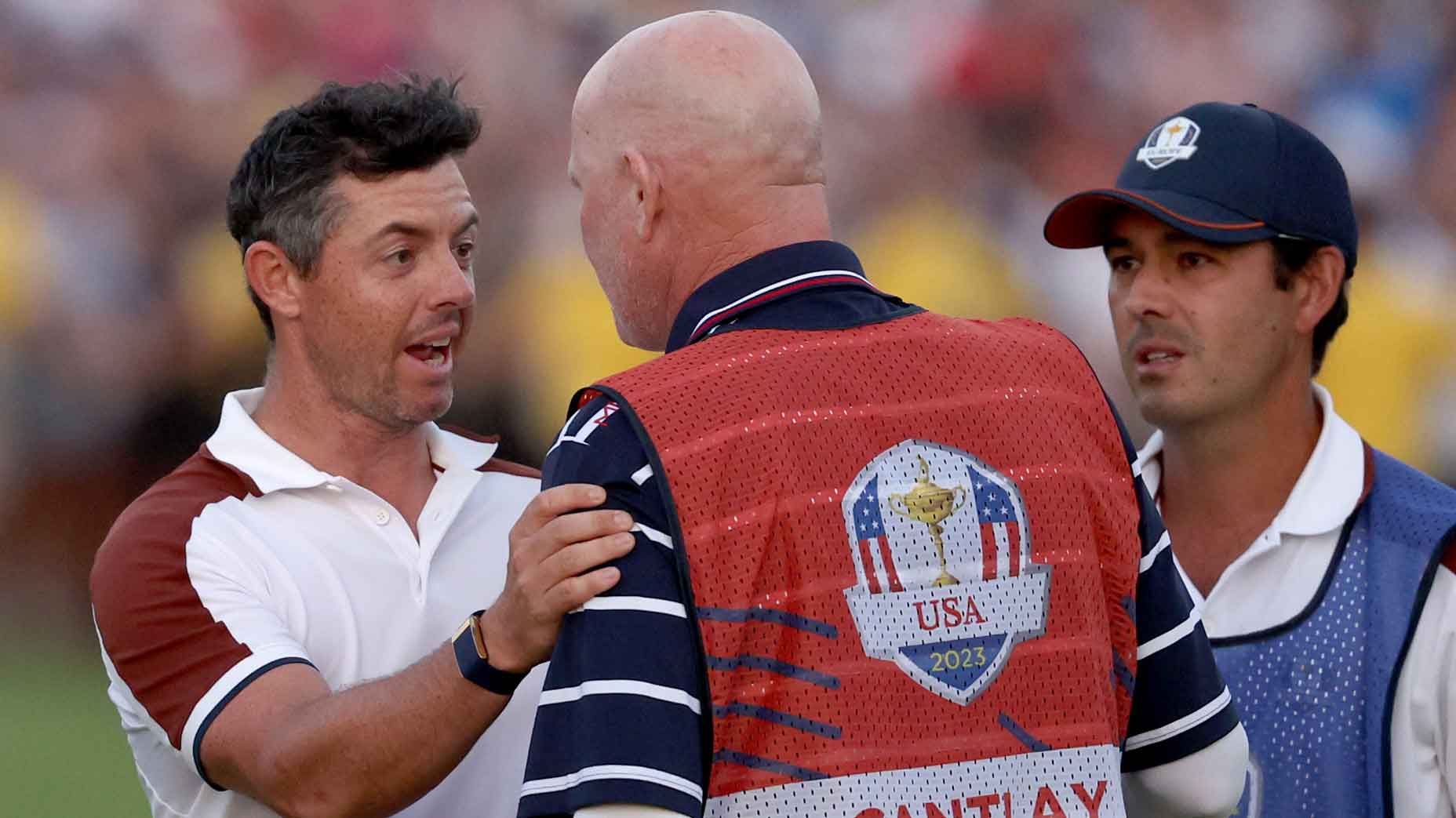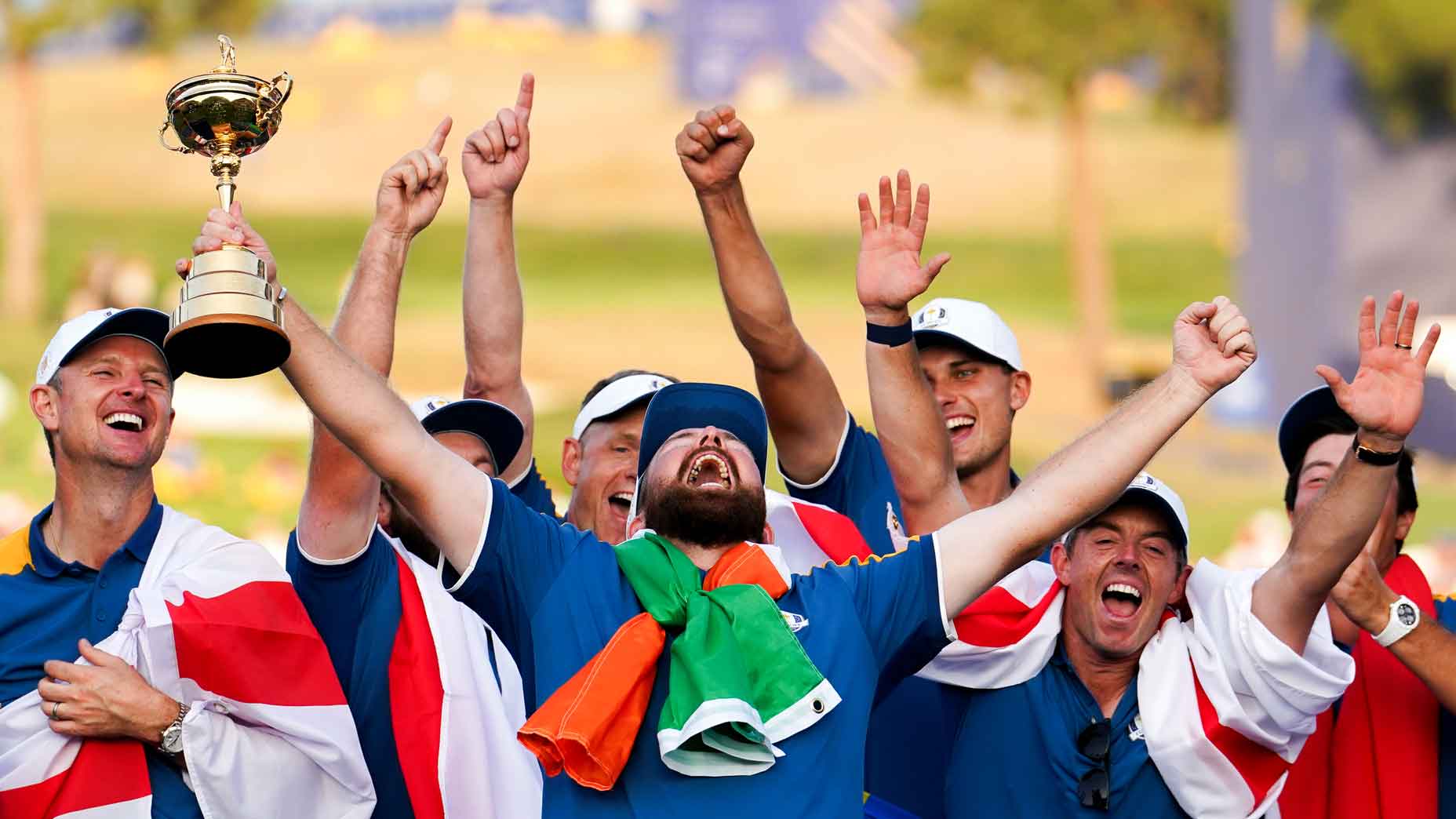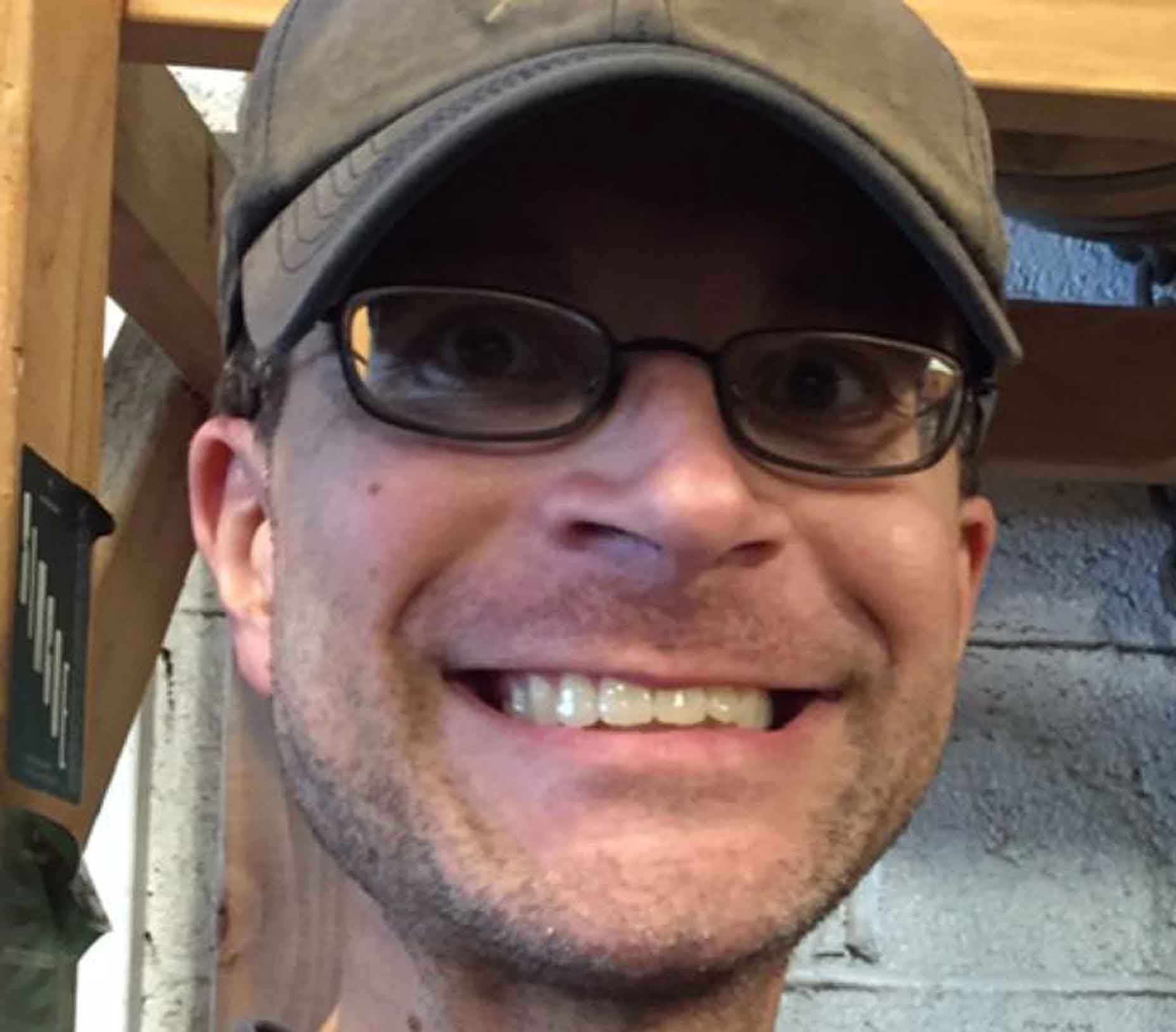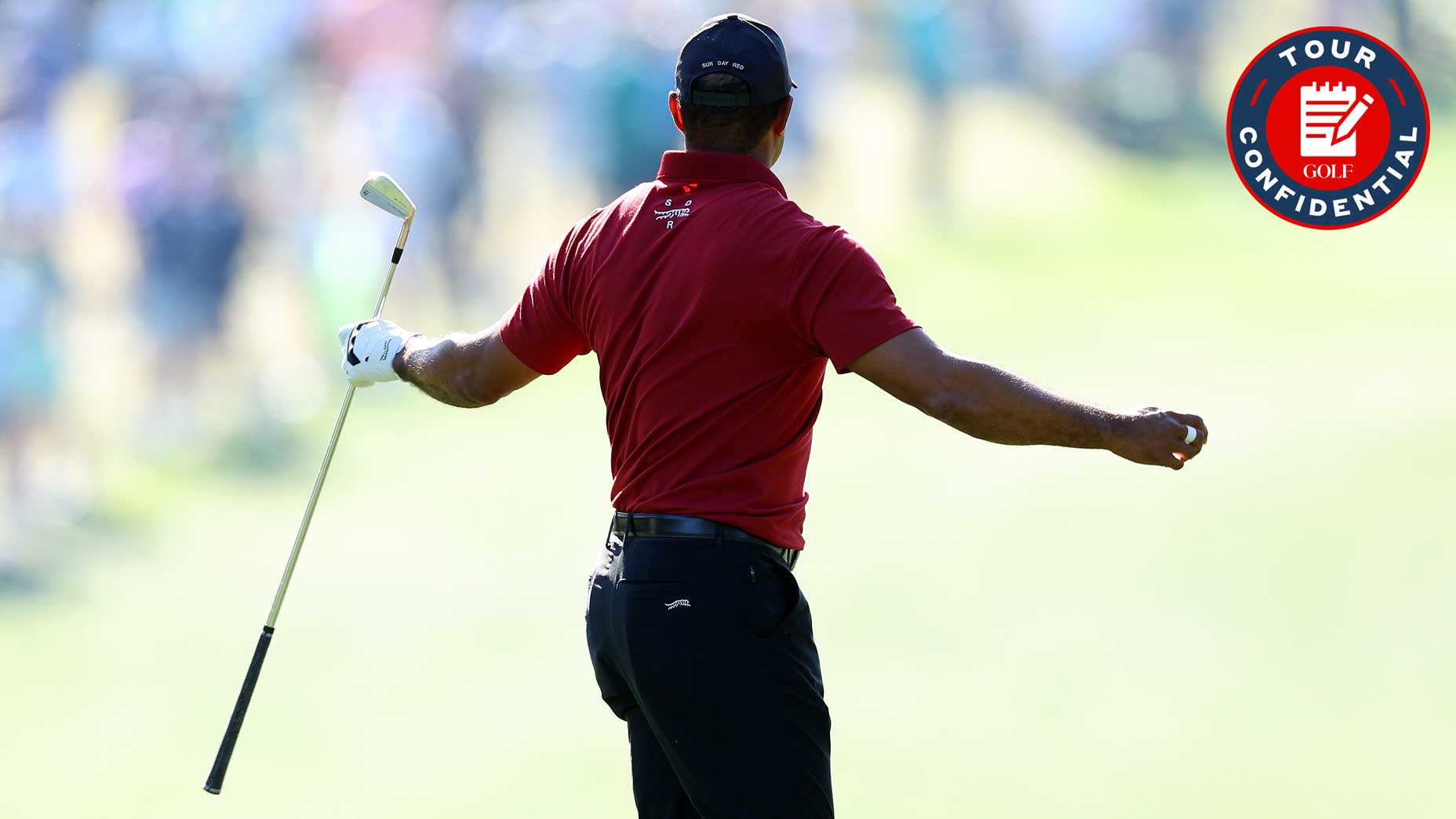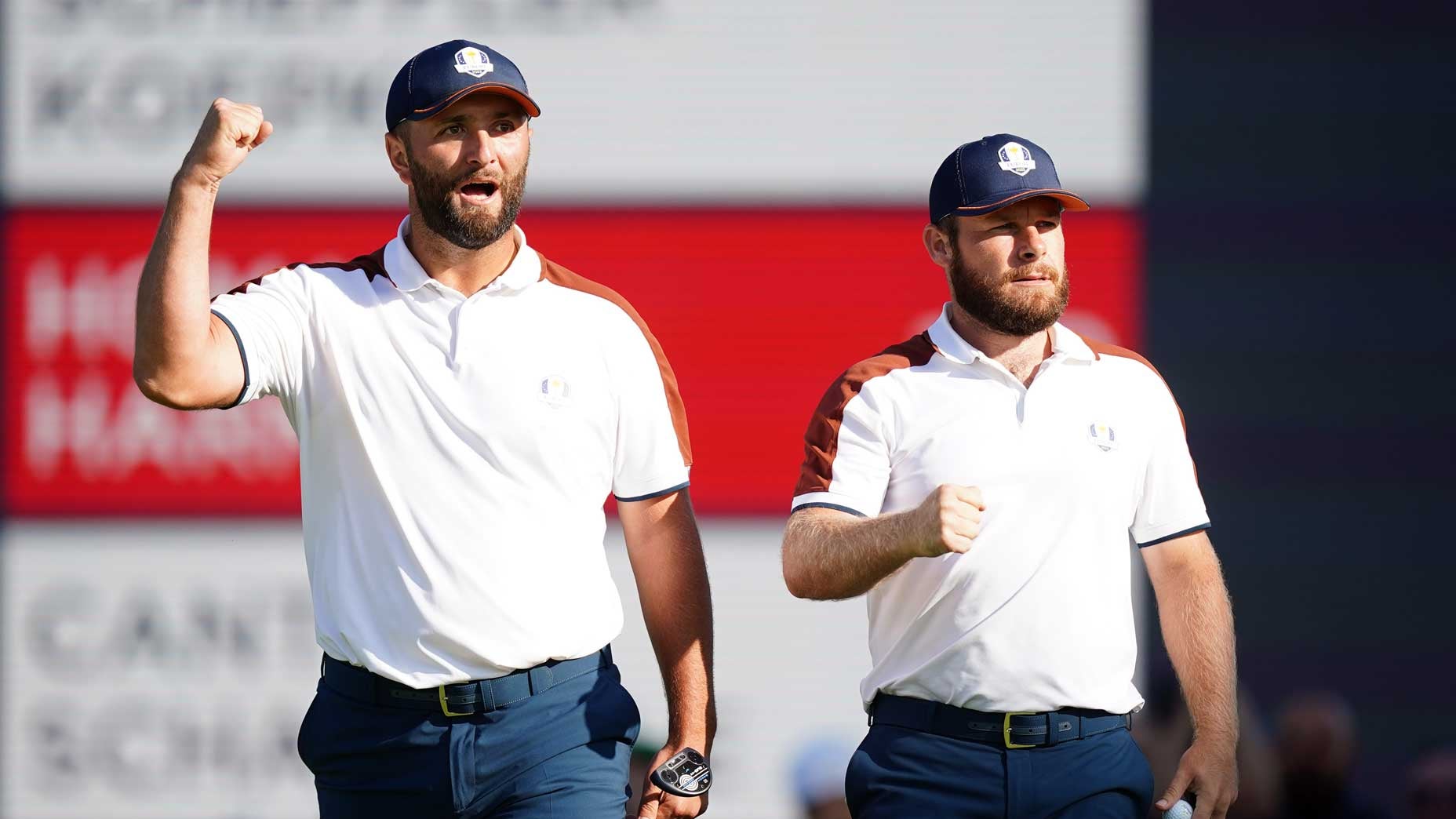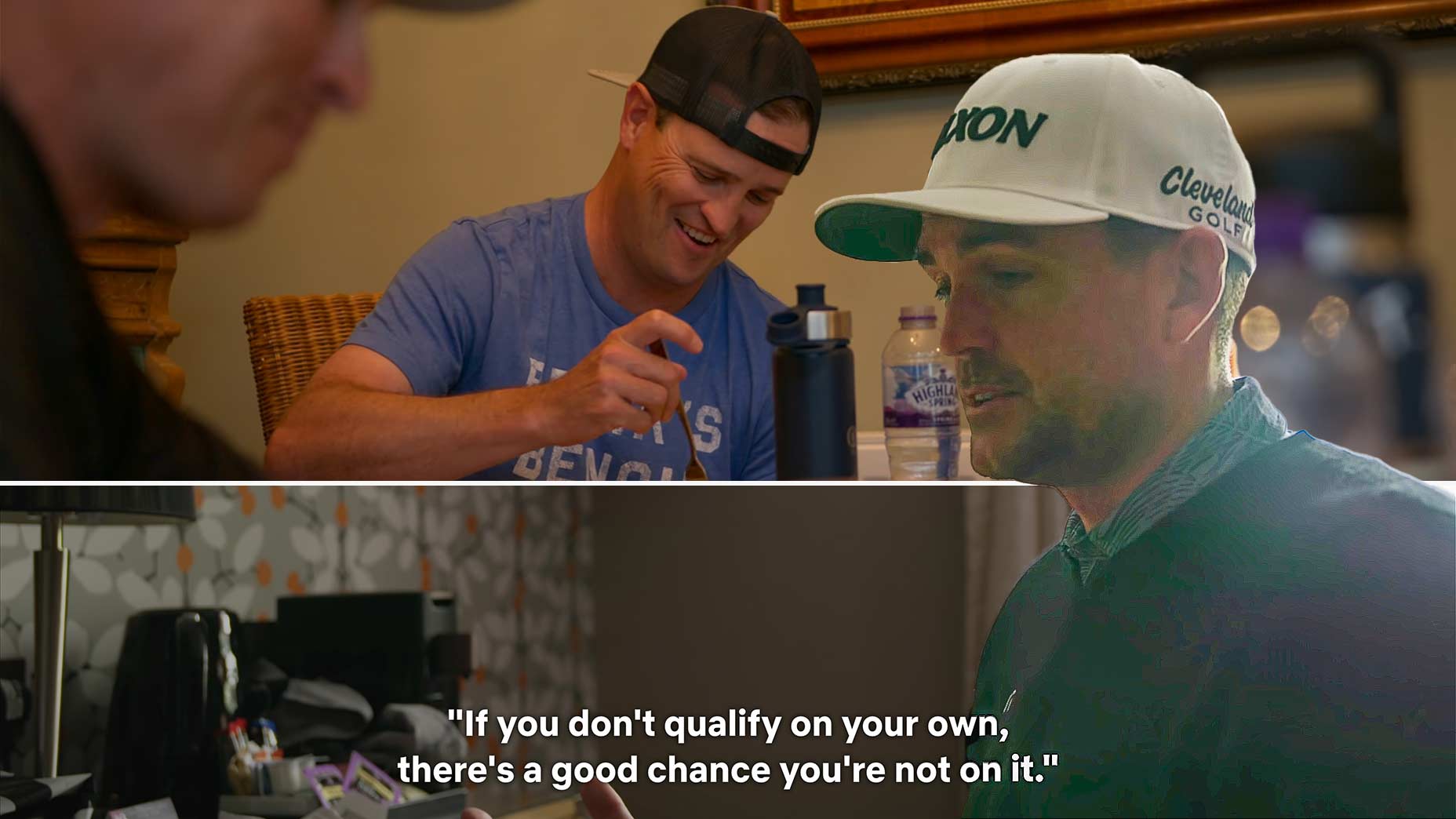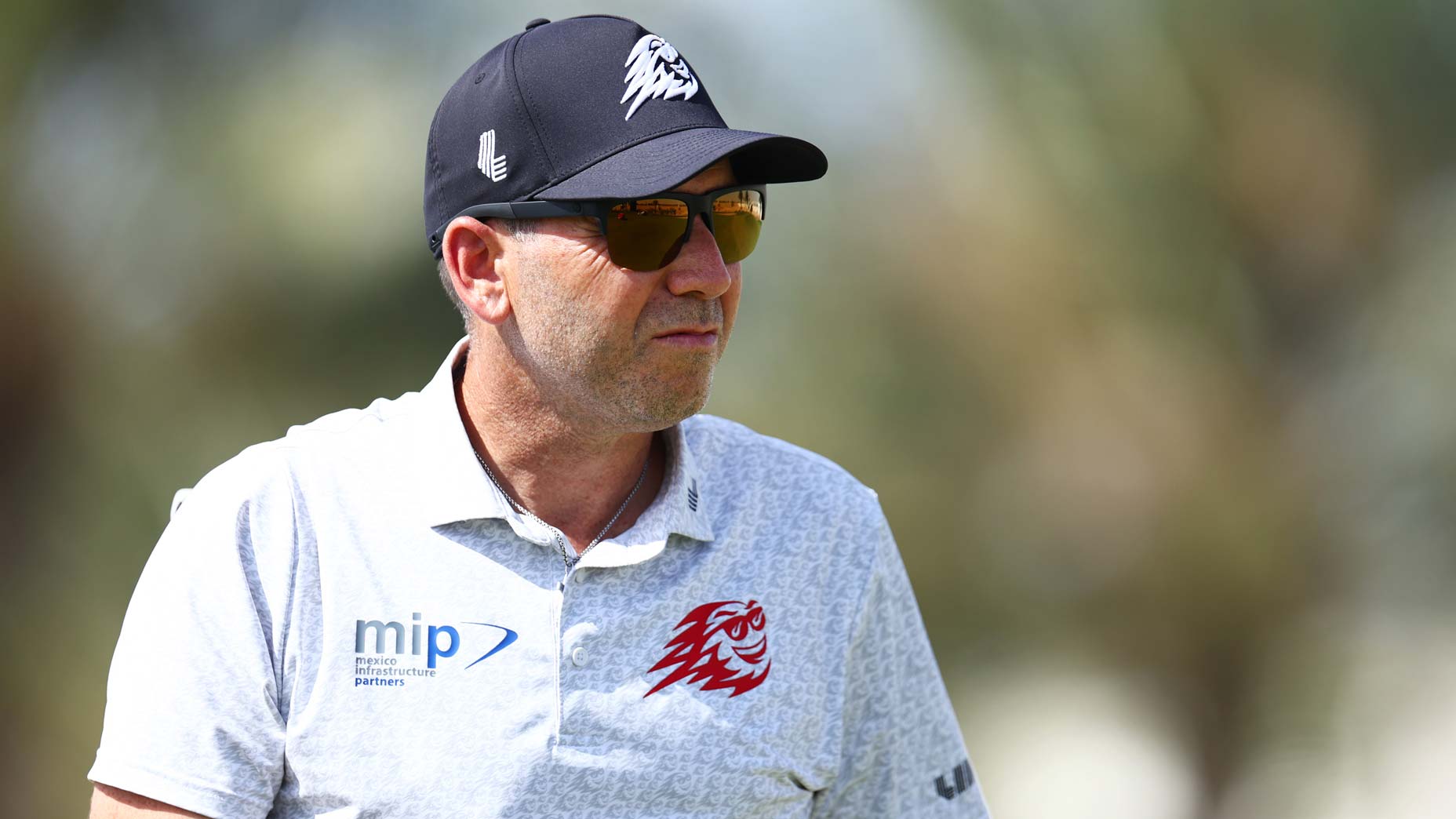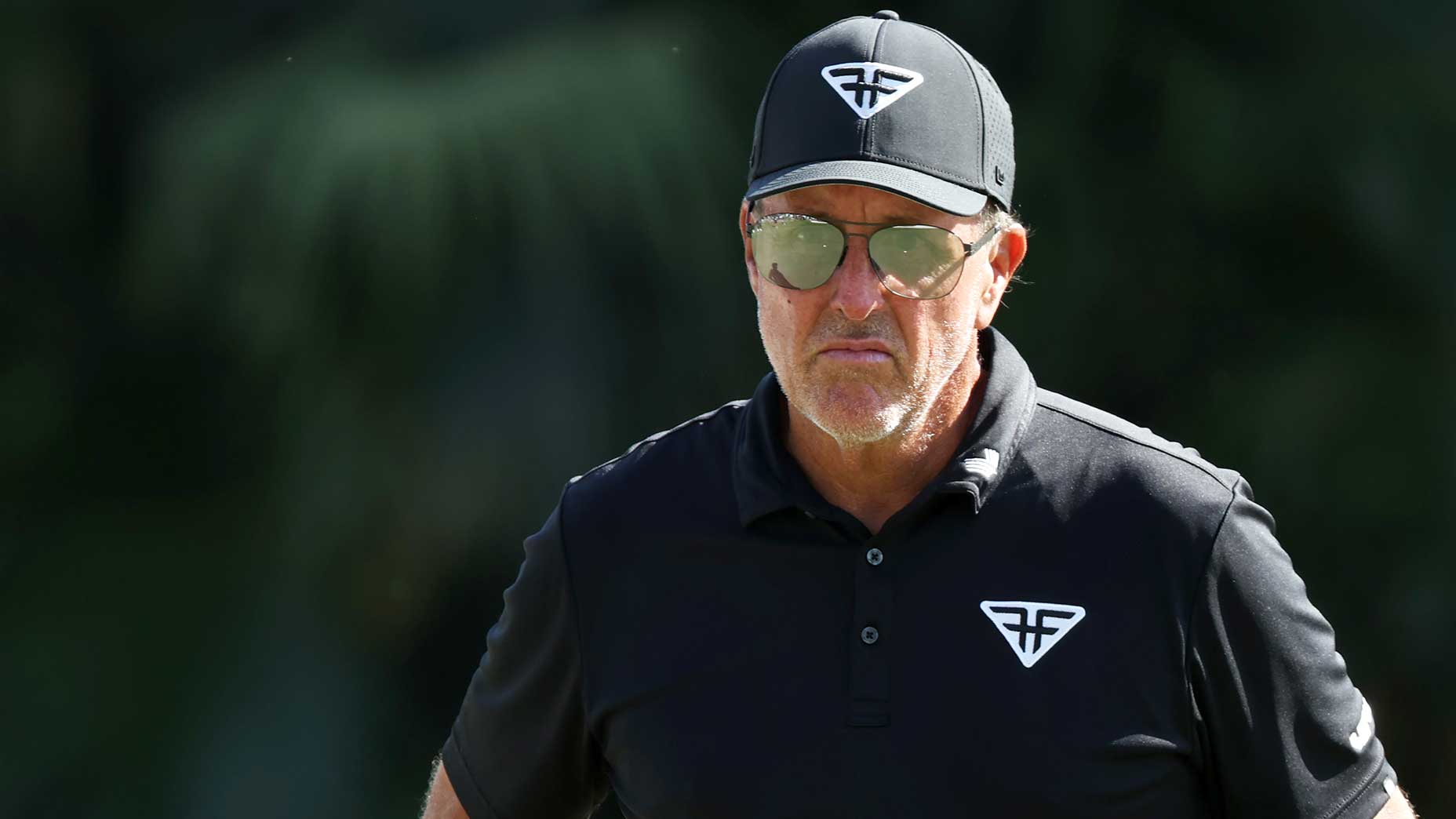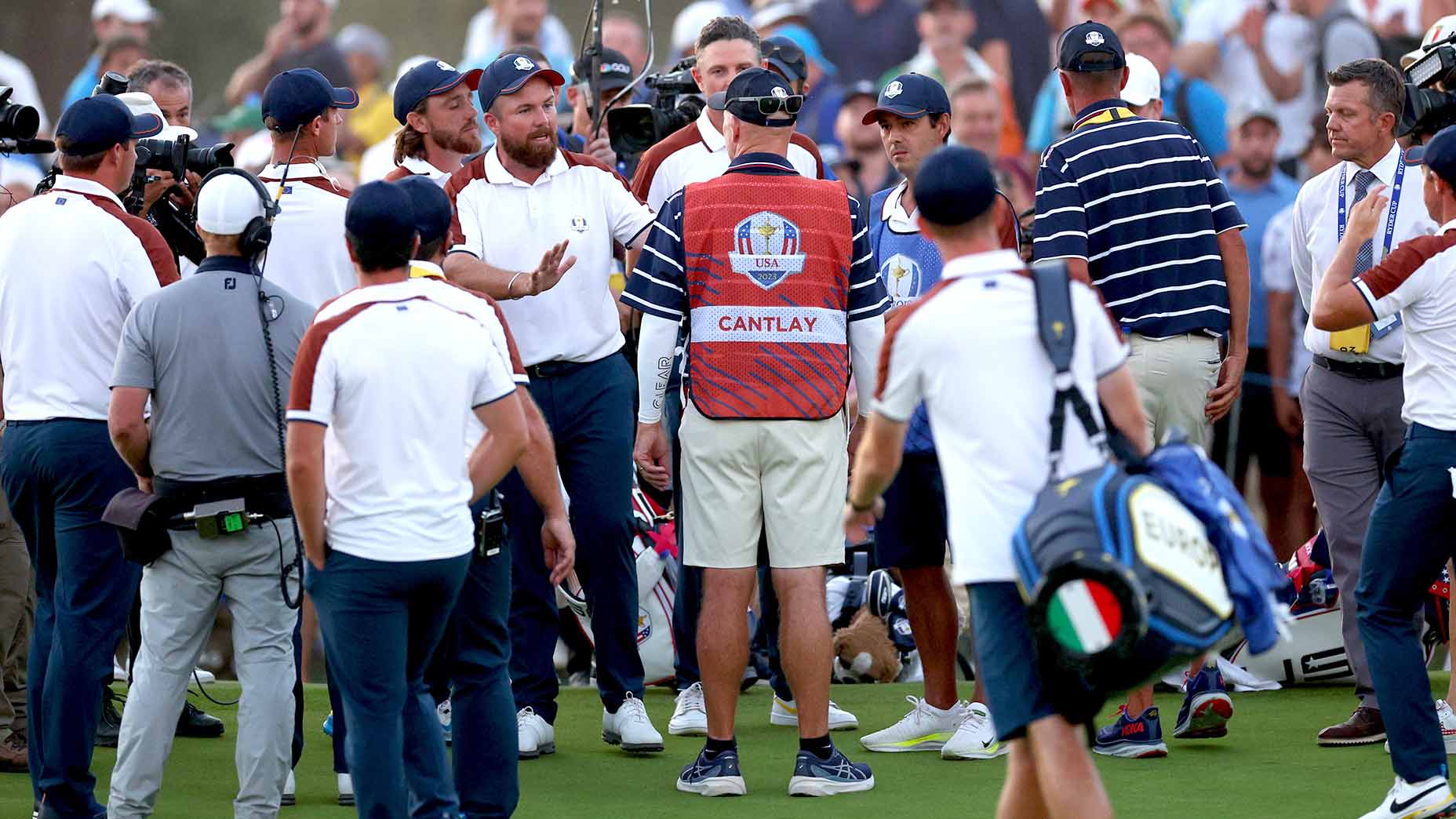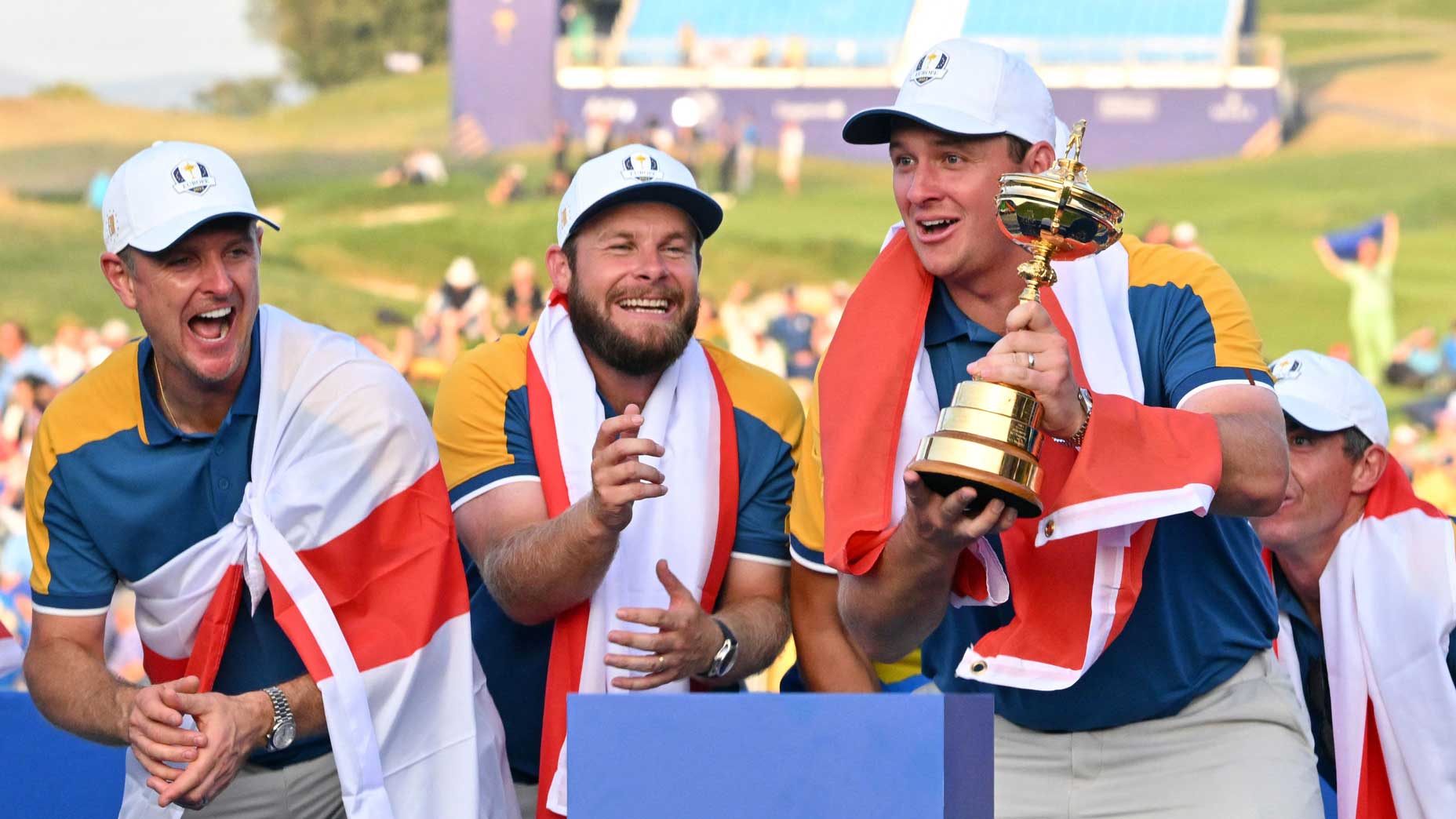Insider on Ryder Cup controversy: No one is taking money and ‘running off into sunset’
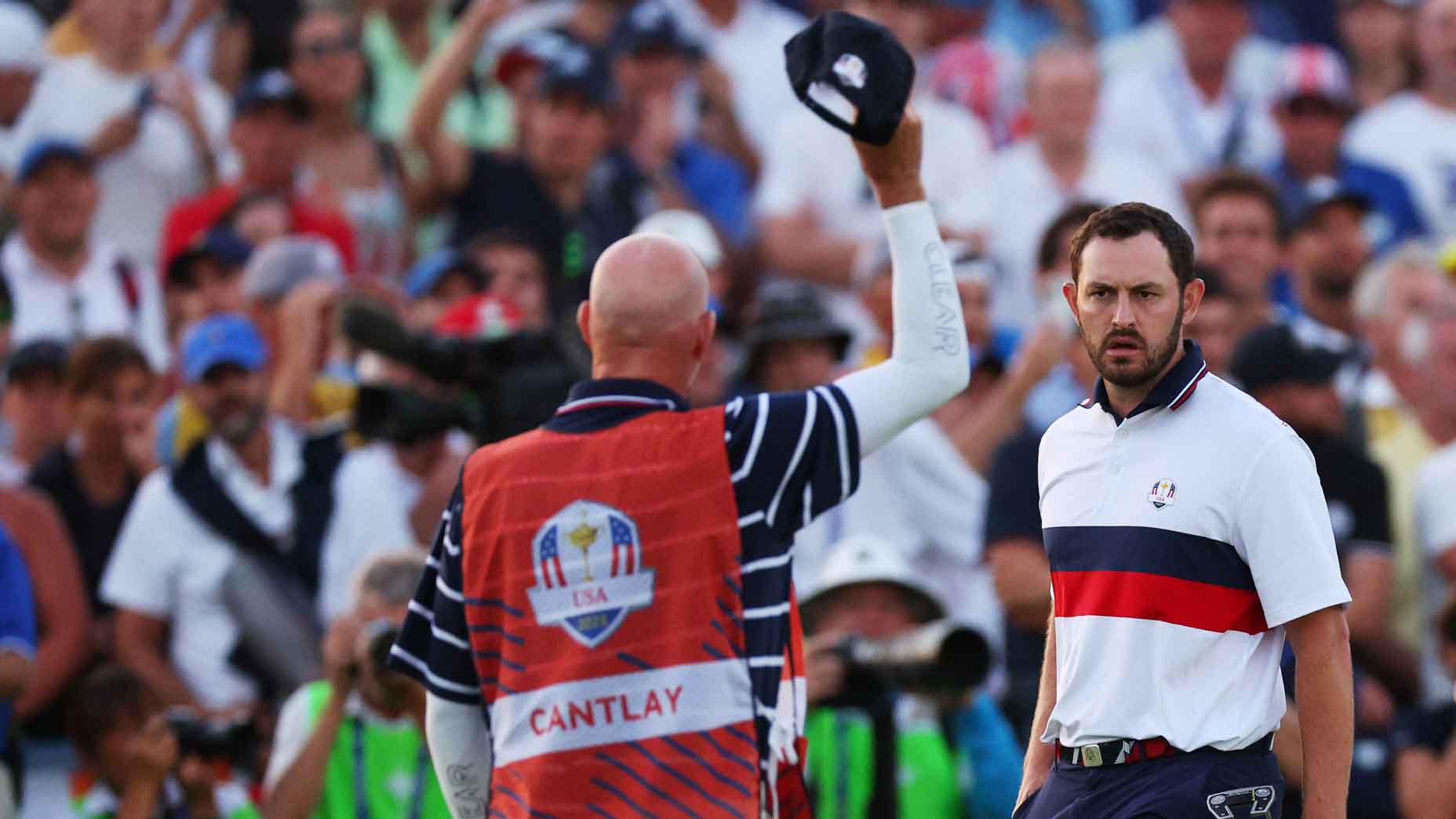
Patrick Cantlay, right, and caddie Joe LaCava on Saturday on the 18th green at Marco Simone.
Getty Images
Ryder Cup players shouldn’t be paid to play, Paul McGinley says.
And certainly not just the Americans.
The former Cup captain and player was speaking this week on the Five Clubs podcast, and you can — and should — listen to the entire episode here. Of course, just days earlier, compensation was discussed perhaps just as often at the biennial event as the biennial event itself.
Though not new, the topic started in earnest last Saturday, when Sky Sports reporter Jamie Weir shared that Patrick Cantlay was wanting to get paid, that he was refusing to wear a hat in protest, and that the U.S. locker room was fractured. From there, the subject snowballed. The report was denied. Fans at Marco Simone, the host site, mockingly waved hats. A day later, Stefan Schauffele, the father of American Xander Schauffele, spoke at length about it all to GOLF’s Dylan Dethier, saying at one point: “They can donate all proceeds after opening the books to a charity of our joint choice, and then we will happily play for free. Please print that.”
And in the time since, the conversation has continued. Notably, the governing bodies of the event — the PGA of America on the U.S. side, and the DP World Tour on the European side — collect millions from the Ryder Cup and distribute the cash to their various events and programs, with players given charitable donations of $200,000 each. (It’s here where you should read another wonderfully reported story, by GOLF’s Jessica Marksbury, on Ryder Cup money.)
Then there’s McGinley. He played in four Ryder Cups for the Europeans. In his first, in 2002, he clinched the Cup with a 10-footer on the 18th hole. He captained a winning side, in 2014.
And on the Five Clubs podcast, host Gary Williams asked him this:
“The whiff of compensation, it’s not new. You can go back to the late ’90s, obviously [Mark] O’Meara, [David] Duval. Do you think compensation will be part of the story at least on the American side by 2025? And do you think the Europeans will absolutely pass on the idea of getting paid?”
Over the next three-plus minutes, McGinley answered.
No, the Americans alone should not be paid, he said.
“I think both teams will have — there’s a lot to be negotiated in the next six months on both sides,” McGinley said. “And it would be unfair if the American team were going to be paid and we were not. So I think there needs to be a proper place found, negotiations with all 24 players and organizations involved. Not everybody is going to be happy. Whether that’s collectively not being paid, whether that’s collectively all being paid or whether that’s a bit of both — a nominal fee for everybody or whatever the case may be, I don’t know. … The heads of both organizations have a lot of work to do in the next six months. We need to get to a common ground in all of this. Because you can’t just have one team do it and get paid a lot and then the other team not.”
McGinley then continued.
No player should be paid at the Ryder Cup, he said.
“Personally, I hope it gets to a place where neither team is paid because I think the money that top professional golfers earn at the moment is huge on so many different levels,” McGinley said on the podcast. “They’re all set up for life, no matter what. Once you make a Ryder Cup standard nowadays, you’re set up for life anyway, whether it be through your pension fund or whether it be in the prize money you’ve earned. I think for one tournament every two years it would be great to give back.
“On the European side, the DP World Tour needs the revenue from the Ryder Cup. So it’s helping all of the guys who are coming through. It’s putting events on the Challenge Tour. It’s putting on decent prize funds on the DP World Tour. And that’s really important for us. It’s a lifeline for us. And on the American side, it’s the 28,000 PGA pros around America and giving money to them so that they can bring young boys and girls into the game and create the future Patrick Cantlays or future Justin Thomases or whatever. A huge amount of investment goes back into it.
“So I think both sides are honorable in terms of what they’re trying to do with the revenues that come in. It’s not like some rich private equity company is taking the money and running off into the sunset and giving it to shareholders. This is money that’s going back on both sides back into the game. It’s going back into the ecosystem on both sides that has churned out these players in the first place. So I think for one tournament every two years, with all the money that’s in the game at the moment and so crass the amount of money that is put to the front in the conversations around golf, I think it would be a wonderful narrative for the future of the Ryder Cup if it was not about money and it was about the 24 players being representative, helping both ecosystems that made them who they are.”
Editor’s note: To listen to the entire podcast with McGinley, please click here.


